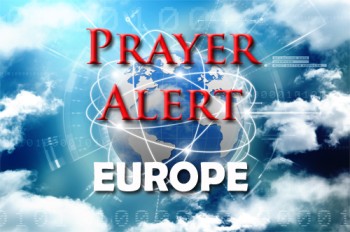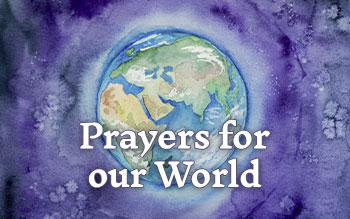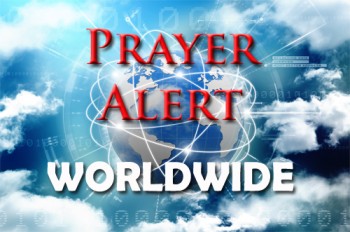Displaying items by tag: drone attacks
Ukraine: drone attacks on Russian oil refineries
On 12 and 13 March, Ukraine conducted heavy drone attacks on several Russian oil refineries, seriously damaging one and causing a fire at another, in one of the most serious attacks against Russia's energy sector in recent months. Oil prices rose 2% partly due to concerns about supply disruption following the attacks which Vladimir Putin said were an attempt to disrupt his country's presidential election this week. Russia and Ukraine have both used drones to strike critical infrastructure and military targets, with Kyiv stepping up attacks on Russian refineries and energy facilities in recent months. Ukraine's SBU security service claimed responsibility for the strikes, stating that they aim to weaken Russia's economic strength. The attacks targeted key sources of Russia's income, potentially reducing gasoline and diesel output. Ukrainian forces also targeted a Russian airbase and military airfield. The escalation underscores the intense conflict between the two nations and the potential economic impact of attacks on Russia's energy infrastructure.
Iran: Protests Over Lack Of Plane Accountability
Only days after large crowds of Iranians demonstrated national unity while mourning the assassination of the country's top military leader in a U.S. drone strike, anti-government protests have erupted on the streets of Tehran and several other cities.
The protesters are angry over the establishment's mishandling of the deadly downing of a Ukrainian passenger jet on January 8 by the Islamic Revolutionary Guards Corps (IRGC) in what is seen as a display of incompetency and recklessness by the country's leaders.
Thousands of protesters, including many students, chanted against the clerical establishment over the weekend and into January 13, with many calling for the resignation of the country's top authority, Ayatollah Ali Khamenei.
"Clerics get lost" was one refrain heard at the protests. Others called Qasem Soleimani, the IRGC commander killed in the U.S. strike and widely praised as a national hero by the state, "a murderer."
It was Iran's delayed admission of guilt for the plane's downing -- three days after the tragedy -- and what was seen by many as an attempt to cover up the real cause of the crash that has aroused public fury and a revival of the grievances that resulted in waves of anti-establishment protests in past months, including in November, when hundreds were killed in a violent state crackdown on rallies against large increases in gas prices.
In the past two days there have been photos and video from the protests showing wounded people being carried away and blood on the ground. In some videos, gunshots can be heard and tear gas is being fired, although the police have denied shooting at protesters.
U.S. President Donald Trump tweeted to Iranian leaders: "Don't kill your protesters."
The demonstrators in Tehran and cities including Isfahan, Shiraz, and Babol were also upset by what they see as a cover-up, including Iran's lack of cooperation with Ukrainian investigators and the bulldozing of the disaster site, which led to international ridicule.
The protests come amid a faltering economy due to crippling U.S. economic sanctions that have contributed to the fall of the national currency, the rial.
"We're seeing society bursting [in anger], particularly students, against lies and the humiliation of the nation," Paris-based Iranian analyst Reza Alijani told RFE/RL.
Mostafa Tajzadeh, an acting interior minister under reformist former President Mohammad Khatami, suggested he was also shocked over the level of deceit by the government. "I must admit I couldn't believe all the lies, secrecy, and deceit in the Islamic republic. Why and how did we reach this point?" he said on Twitter.
Speaking on January 13, government spokesman Ali Rabiei denied that the state concealed facts and misled the public, while acknowledging the public had lost trust in it. He noted the plane was downed just a few hours after Iran had fired more than a dozen ballistic missiles at two U.S. bases in retaliation for Soleimani's killing, and suggested the high tension between Washington and Tehran played a role.
"All armed forces were on high alert and this was the reason for the tragic mistake and the accident," Rabiei was quoted as saying by state media.
More at: https://www.rferl.org/a/anger-grows-in-iran-over-lack-of-accountability-in-ukrainian-plane-tragedy/30375053.html?ltflags=mailer
Pray for the Iranian people whose lives are affected both by the policies of their government and the effect of the harsh international sanctions.
Pray that Iran will adhere to the requests by the world community for it to stop funding terrorism and to adhere to the nuclear agreement and stop processing enriched weapons grade uranium.
Lebanon: escalation of tensions
Lebanon opened fire on Israeli surveillance drones on 28 August, heightening the conflict between the warring neighbours. Lebanon does not usually attempt to down Israel’s unmanned surveillance planes, but its Hizbollah military wing said it was preparing a ‘calculated strike’ against Israel, in retaliation for an Israeli raid on its position near Damascus and a drone attack in Beirut on its Iranian missile-making equipment. Sources believe Lebanon will target Israeli soldiers on patrol near the border. Israeli media reported that Israel had targeted and destroyed machinery used for the production of precision-guided missiles. It is trying to disrupt the flow of weapons and technology from Iran to its proxies in Syria and Lebanon. In response to constant rocket attacks, Israel has carried out hundreds of strikes against Hizbollah and Iranian positions in Syria, so far with little response. Lebanon’s president is increasingly influenced by Hizbollah, which is also represented in the country’s parliament.


